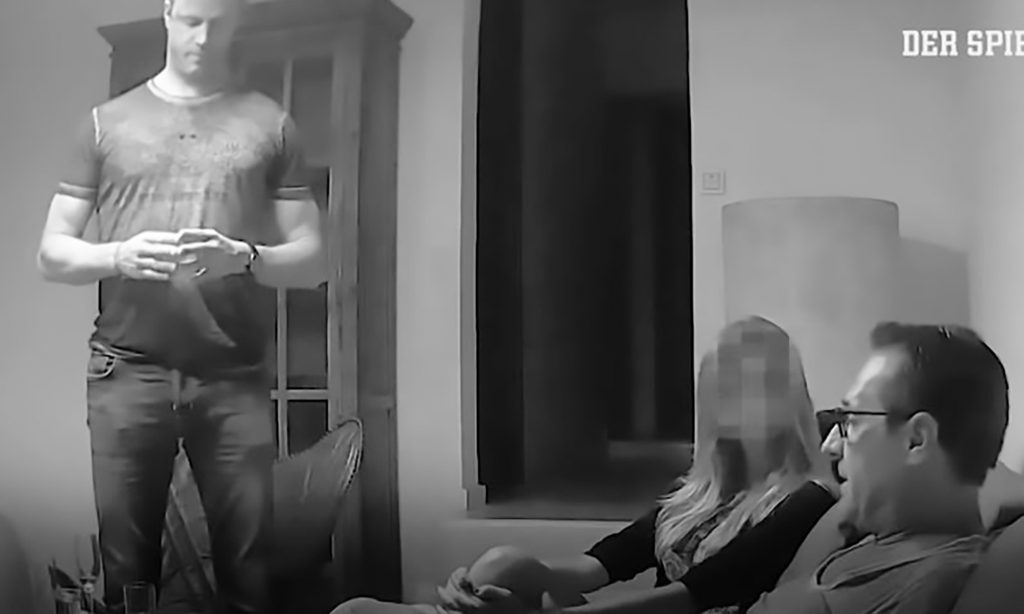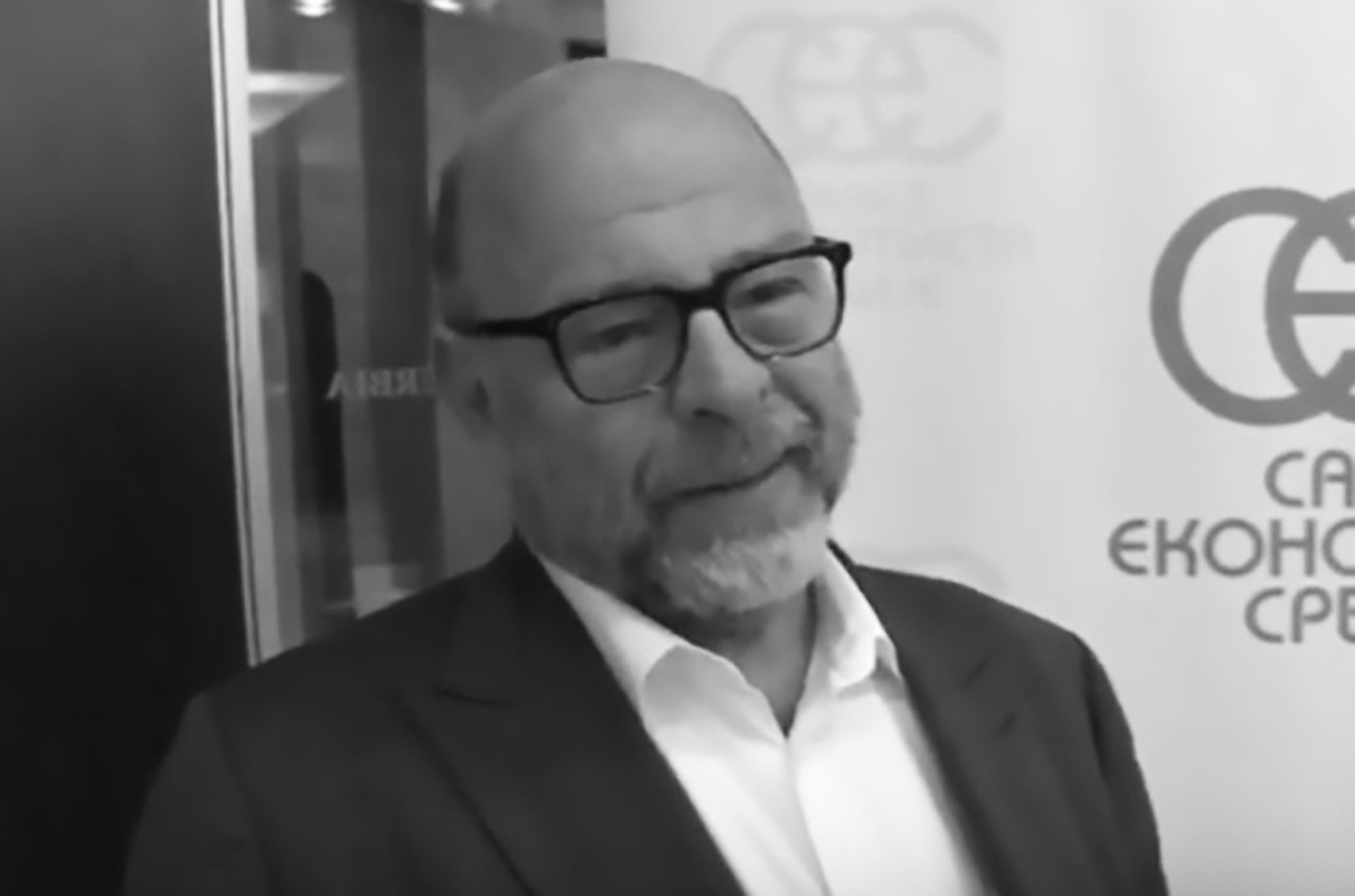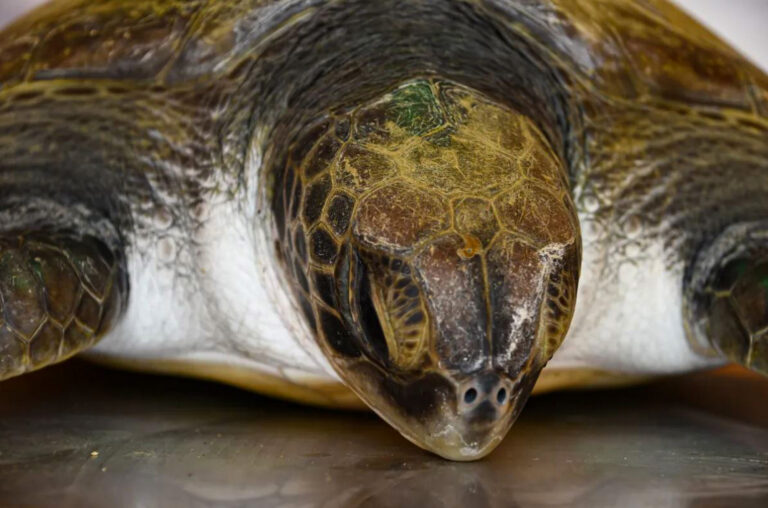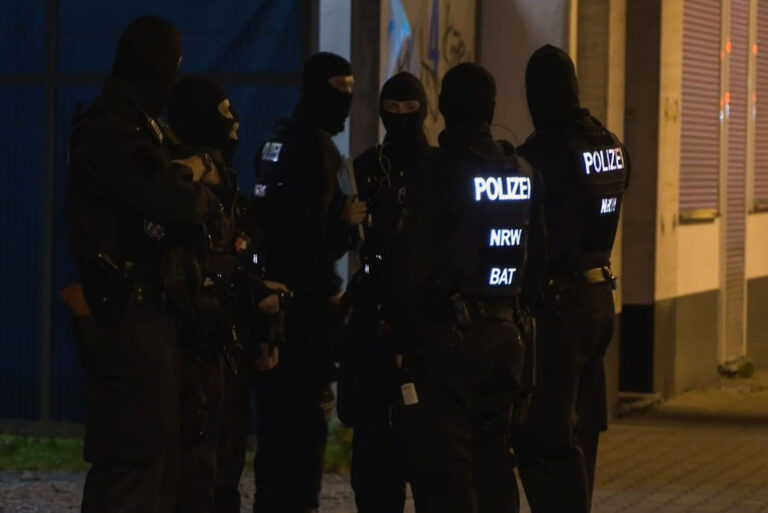The admission by an Austrian lawyer that he was involved in the ‘Ibizagate’ video has raised the question as to what role a firm closely connected with the opposition SPÖ and which he once worked for might have played in the scandal?
Austrian Vice Chancellor Heinz-Christian Strache of the far-right Freedom Party (FPÖ) and Parliamentary Party boss Johann Gudenus both resigned after the video was published.
It showed them in a drunken conversation in a villa in Ibiza with a woman claiming to be Alyona Makarova, the niece of a Russian Oligarch, and it also showed a man claiming to be a real estate agent who had put the two in contact.
The two FPÖ men are seen relaxing and drinking vodka with Red Bull as they try to persuade a Russian woman to buy a stake in the Austrian mass market Kronen Zeitung newspaper, and offering access to lucrative state-controlled contracts at the same time as talking about the possibility of party funding.
Their resignations in the wake of the scandal sparked a chain of events that resulted in the FPÖ being ejected from government on the eve of EU elections.
The Ibizagate video that caused this was rushed out before the election by media following the agenda of persons unknown, and was therefore only half the story. The media that published it presumably claimed not to know where it came from, or who paid the up to EUR 600,000 it is estimated to have cost to set up the sting, or why it was only being released now?
A good starting point would have been to discover the identities of the other two people in the video, a man and a woman who both appeared using fake identities.
The woman claimed to be Alyona Makarova but in reality, she never existed. Her alleged oligarch uncle Igor Makarov, 57, who is worth 2.1 billion dollars and one of Russia’s richest men, is an only child so has no nieces or nephews. It is claimed from a credible source that she was hired from the red-light scene to provide a distraction and encourage the Austrian pair to show off. The late night, six hours of drinking, the holiday atmosphere and a beautiful woman was designed with one aim in mind – to lower the men’s guard. And it worked.
The second person claimed to be estate agent Julian Thaler. In reality, as revealed in the EU-Infothek web site, he was an Austrian detective working in Germany known as Julian Hessenthaler. His close friend and partner in the project was a Viennese lawyer Dr Ramin Mirfakhrai, and both men are reportedly connected to the firm of Lansky, Ganzger and Partners, the law firm closely connected to the Sozialdemokratische Partei Österreichs, the Austrian Social Democrats (SPÖ) that are the bitter rivals of the FPÖ.
Of course with his Iranian family roots Dr Ramin Mirfakhrai, who was born in Teheran in 1976 has no reason to like the anti-immigration FPÖ, but his CV also reveals that between 2002 and 2004 he worked in Lansky’s firm. Lansky may not remember him, but even if that was the case, lawyers at the Lansky office need to have clear SPÖ loyalties, a division in the workforce along political lines that is often difficult for anyone outside the country to understand.
Once it declared its neutrality in 1955 and the Second Republic was born, the new Austria adopted a constitution based on the system of Proporz (from the word proportionally) the so-called social partnership system in which most of the posts of political importance were split evenly between members of the SPÖ and the ÖVP.
It also introduced special interest groups or guilds known as the Kammer that had mandatory membership for workers, business people, farmers and all sorts of other groups.
The political parties, the Kammer and representatives of business regularly get together to decide almost all decisions of importance including legislation, rent limits, basic food and fuel prices, and everybody is classed by their party loyalties with a constant battle to extend influence into other areas.
It is not just in government, government-controlled concerns such as the state railway company ÖBB, and even private firms can be classed by their colour, black for the Conservatives, red for the Socialists.

Lansky’s chambers is firmly red, and it adds further suspicion as to the motivation of Dr Ramin Mirfakhrai as it is inconceivable that he would have been employed in any significant position at the Lansky law firm were he not firmly SPÖ red.
The other man in the case, Julian Hessenthaler, works for a Munich-based detective agency which is a short 6km car drive from the offices of the Süddeutsche Zeitung that has invested so much time in coverage of the Ibiza scandal video.
He has admitted he was behind the filming, saying it was a “civil society-driven project in which investigative-journalistic approaches were taken”. According to EU-Infotech, he also worked for the Lansky law firm.
Hessenthaler had his first recorded contact with the two FPO men on 24th of March 2017 in the VIP Le Ciel restaurant in Vienna to discuss the sale of the land owned by the Gudenus family to the wealthy Russian woman.
Both sides agreed to meet again, and it was at one of these meetings that she and Hessenthaler suggested the idea of continuing discussions in Ibiza.
Thaler’s former boss and later business partner Sascha Wandl, who trained him in sting operations, said the setup was based exactly on his lessons to his former protégé, and estimated that the entire sting probably cost in the region of between 300,000 and 600,000 Euros. They had later allegedly attempted to sell the video for up to 5 million Euros. It was not their first similar attempt, in 2015 Ramin together with senior Conservative and Social Democrat officials had tried to sell videos allegedly showing Strache with illegal substances. The price for that was 1 million EUR.
However, Wandl believes any money that could have been made from the sale was simply the icing on the cake, and in reality the operation was more politically motivated. He said: “There was definitely a political and financial background. And I believe there was a contract with a project that was politically motivated.”
It was Wandl that also revealed the woman was probably a prostitute.
Wandl told Austrian newspaper Oesterreich: “Julian is the son of an international arms dealer and was once sentenced in connection with a drugs offence. I met him in 2014 and I trained him for commercial spying at (an Austrian firm), where we used exactly the same strategy as he did in the Ibiza case.”
The two men had founded the detective agency Konsic that carried out spying for the Austrian firm but Wandl left the business in 2016. He said that Ramin Mirfakhrai was also involved in the work they did at the firm as a middleman.
Ramin Mirfakhrai is now himself in the spotlight, and he has his own lawyer representing him, Richard Soyer, personally and professionally closely connected to Gabriel Lansky and who also previously worked in the Lansky chambers.
It might seem logical that former work colleagues would turn to each other in cases like this, but there is also another reason to keep in mind.
In 1998, the journalist Klaus Grubelnik wrote a book entitled Die Rote Krake, the Red Kraken, in which he described how the Social Democrats had used Bank Austria to reach out like a giant red Kraken into every aspect of life in the Alpine Republic.
More than 20 years later, Bank Austria has been sold to foreign ownership and Gerhard Randa, who was once the most powerful man in the country, ended up under investigation by prosecutors over his activities although the probe was later dropped. But can it be that Vienna has a new Red Kraken in the form of Dr Lansky, someone that has learned from the mistakes of the past and has a whole new way of dealing with opposition?
It is said that Lansky came into contact with the detective Julian Hessenthaler on the case of Rakhat Aliyev, who died in an Austrian jail shortly before he was due to go on trial for murder based on allegations from his former political masters in Kazakhstan. Austria refused to extradite him, believing with some justification that he would probably not get a fair trial.
Aliyev was the former Kazakhstan ambassador to Austria, and had been a senior official in the Kazakhstan government where he was head of the tax police, deputy head of the KNB state Secret Service as well as being the Vice Foreign Minister. He made a fortune through his connections, and married the eldest daughter of the president Nursultan Nazarbayev.
But he fell out with the leadership, after which the murder allegations emerged which he claims were politically motivated. He also alleged that there was a campaign to swing public opinion in favour of sending him back home, and that Lansky was behind that campaign working as an agent for the Kazakh regime.
Evidence that there was a dirty tricks campaign was certainly suspected by Austrian officials, as in June 2013 former SPÖ chancellor Alfred Gusenbauer and Lansky were investigated over allegations that they had passed confidential documents relating to Aliyev to the Kazakhstan authorities.
A year later it was revealed Lansky had been paid EUR 14 million between 2009 and 2012 by a Kazakh organisation supposedly set up by the widows of the two men he is accused of killing.
It was never explained where they got the money, and Austrian officials believed it was a cover organisation for the KNB. He was accused of using a PR company that had spent years on a dirty tricks campaign that involved making negative postings on Internet against Aliyev, and in 2015 there was further allegations of improper conduct between Lansky and a senior justice ministry official over an exchange of date in the Aliyev case. Both denied any wrong doing and the court ordered the investigation stopped before it even came to trial.
Was part of the Kazakhstan money used in hiring the services of Hessenthaler for the alleged dirty tricks campaign?
While the SPÖ were in power, Lansky had acted with impunity in his many activities, yet after the FPÖ were elected to government, he would have had to be more careful, and he realised he had a real problem when he discovered that hundreds of thousands of emails had been stolen.
How the emails ended up with the BVT, Austria’s Office for the Protection of the Constitution and Counterterrorism, is still shrouded in mystery, what is known is that he had a Dutch system administrator who had apparently illegally copied material from the email server dating back from the turn-of-the-century right the way through to around 2015. In total it was around 600,000 emails.
The Dutchman denies any improper motive and claims to be a victim himself and with legal proceedings still ongoing, that story is no more part of this narrative.
What is significant is that the emails with the BVT ended up as part of the investigation by the High Court in Linz into Lansky’s dealings with Kazakhstan. The court as mentioned decided that there was no case to answer and ordered the investigation stopped, and the emails deleted, or returned.
The BVT was part of the Austrian Interior Ministry which is in the hands of the Conservatives, but the BVT has always been a traditional socialist enclave within the conservative controlled ministry where it is housed. This might explain why the data, which had clearly been illegally obtained as it had been stolen, was not immediately deleted.
The Conservative People’s Party (ÖVP), which ran the ministry that controlled the BVT, were no doubt delighted at being delivered this treasure trove on a plate, and would not have wanted the BVT to delete it.
But there was another reason the data survived.
Since the Orson Welles classic the Third Man, Vienna, which prides itself on its neutrality and its location as a gateway between east and west, has been known as the spy capital of Europe.
But as well as spies it also attracts foreign billionaires who hob nob with local politicians in exchange for passports, foreign dictators, especially from the east, are welcomed with the red carpet by lawyers hoping to cash in on the money available, fighting competition from banks, tax advisers, lobbyists and IT security consultants, all wanting a share of the pie.
The BVT is well placed to gather data on all of this, and while on the one hand their loyalty to the SPÖ was beyond question, on the other hand the whole purpose of the BVT was to crunch data. It is likely the opportunity to get an insight into people who were the high-profile clients of Lansky’s firm simply proved too much.
What did happen is that possibly from within the BVT Lansky was made aware about the security leak, and so began his bid to have it returned or given such a high security classification that it would effectively be put out of reach to political opponents.
After the Linz judgement did not achieve the desired effect, he then intensified his efforts, resulting in raids on the BVT that destroyed its international credibility as a serious spy network, and worse for Lansky, the raids resulted in a Parliamentary enquiry. That extended access to the data in the files beyond the conservatives, to put it in the hands of every Austrian political party. All those reading the contents will have been sworn to secrecy, but that is small comfort to those that will have done business with Lansky over the years.
The suggestion that Lansky has been linked in with any sort of smear campaign in the past prior to Ibizagate and his close relationship with the SPÖ alone are reasons for concern in the wake of the consequences of the video in Austrian politics, but will there be an enquiry?
This question it is even more relevant in the light of the fact that in the 2017 election, at the time the video was being filmed, when Strache and Gudenus were in opposition, is was discovered that the SPÖ had paid around 500,000 Euros for illegal vote support from political adviser Tal Silberstein to carry out exactly the sort of smear campaign Lansky was accused of over Ilyev.
This is at the same time the Ibizagate plot was taking shape.
Silberstein was arrested at the height of that in August 2017 in Isreal on suspicion of bribery, document falsification and money laundering. The SPÖ terminated his contract, but the damage was done. Even if they had had the Ibizagate tape in their hands, there is little doubt that to have published it then would have had the potential to backfire badly.
Is it possible that some of the money the SPÖ spent on dirty tricks was paid to the Ibizagate plotters who reportedly needed up to 600,000 Euros to fund their operation?
One other thing we know is that three BVT staff were in Ibiza at the time the video was filmed. They were there officially, it is unclear why and may have been nothing to do with the Ibizagate, but they were there on official business.
The political climate of the time shortly before the 2017 election in which the SPÖ was forced into numerous denials certainly meant it was unlikely the investment, if it had come from them, would have yielded any results.
Without it, and deprived of Silberstein who had quickly became a handicap instead, the ÖVP overtook the SPÖ by a considerable margin, and became the strongest party with the SPÖ only just coming in second ahead of the FPÖ, which also increased significantly.
How would the Austrian public have reacted at this form of entrapment as seen in the Ibizagate video?
But that was then, and scroll forwards two years and the lure of using it with its damning content that had such disastrous consequences for the FPÖ was clearly too great.
The release of the video now shortly before the EU vote is certainly not by chance, and as always in Austrian politics, those who benefited from the trickery if they are exposed will have it done when its too late to do anything about it.
To find out more about the author, editor or agency that supplied this story – please click below.
Story By: Michael Leidig, Sub-Editor: Michael Leidig, Agency: Central European News





I love this quote. It means Austria is still a semi-democratically run republic. Mandatory memberships are actually not within human rights.
“Once it declared its neutrality in 1955 and the Second Republic was born, the new Austria adopted a constitution based on the system of Proporz (from the word proportionally) the so-called social partnership system in which most of the posts of political importance were split evenly between members of the SPÖ and the ÖVP.
It also introduced special interest groups or guilds known as the Kammer that had mandatory membership for workers, business people, farmers and all sorts of other groups.
Bullshit.